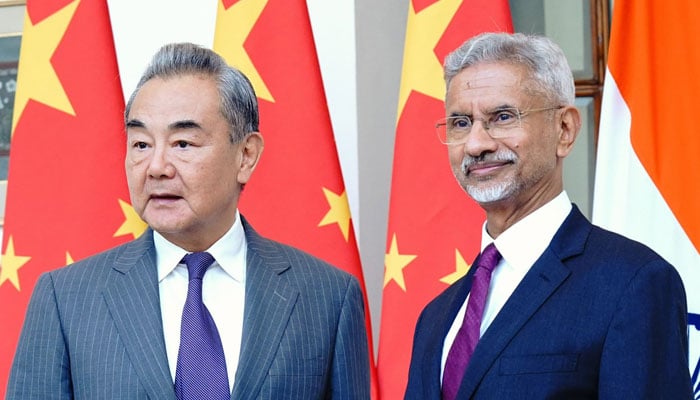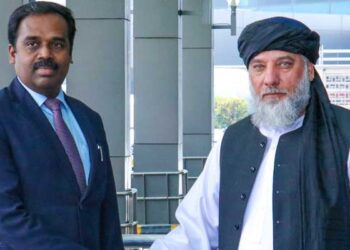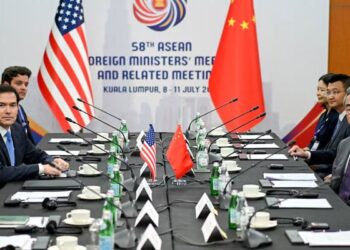Select Language:
Chinese Foreign Minister Wang Yi (left) with Indian Foreign Minister Subrahmanyam Jaishankar. — X@DrSJaishankar/File
• The foreign ministers of China and India discuss border peace and trade initiatives aimed at strengthening their relationship.
• Wang Yi mentions that dialogue with India has been gradually re-established.
• Wang arrived in Delhi on Monday for a two-day diplomatic visit.
—
BEIJING/NEW DELHI: According to the Chinese Foreign Ministry, China and India should develop a “correct strategic understanding” and view each other as partners rather than rivals.
China is prepared to promote principles of friendship and mutual benefit in its interactions with India, as highlighted in the Chinese Foreign Ministry’s statement following ministers’ talks in New Delhi.
During their meeting, Wang Yi and Subrahmanyam Jaishankar addressed issues including border stability, trade, and bilateral exchanges, with a focus on enhancing cooperation between the two nations.
“We had constructive discussions covering our economic and trade relations, pilgrimages, cultural exchanges, river data sharing, border trade, connectivity, and people-to-people contacts,” Jaishankar noted.
He emphasized that these talks will help foster a stable, cooperative, and forward-looking relationship between India and China.
Wang Yi stated that exchanges and dialogue at all levels have been steadily restored, signaling a return to cooperative relations, as per Chinese reports.
Wang also called on both countries — as major global players — to set an example for other developing nations by uniting and strengthening their positions, according to the official statement.
He urged that China and India should cultivate a “correct strategic understanding,” treating each other as partners and opportunities rather than threats or competitors.
Wang arrived in India’s capital on Monday for a two-day visit, during which he plans to hold the 24th round of border talks with National Security Adviser Ajit Doval and meet Prime Minister Narendra Modi.
Earlier, Jaishankar highlighted the significance of discussing border issues, noting that maintaining peace along the disputed Himalayan border is fundamental for positive bilateral momentum.
“Our relationship has faced some challenging periods, but now both countries are looking to move forward through honest and constructive dialogue,” Jaishankar told Wang in his opening remarks.
He also stressed the importance of troop de-escalation along the contested border since the deadly clash in 2020.
Wang’s visit precedes Modi’s upcoming trip to China — his first in seven years — to attend the Shanghai Cooperation Organization summit, which includes Russia as a member.
Relations between the two Asian giants started to improve in October after they agreed on a milestone pact to reduce military tensions in their Himalayan border regions, following talks between President Xi Jinping and Modi in Russia.
Tensions escalated significantly after a military skirmish in summer 2020 that resulted in the deaths of 20 Indian soldiers and four Chinese soldiers.







